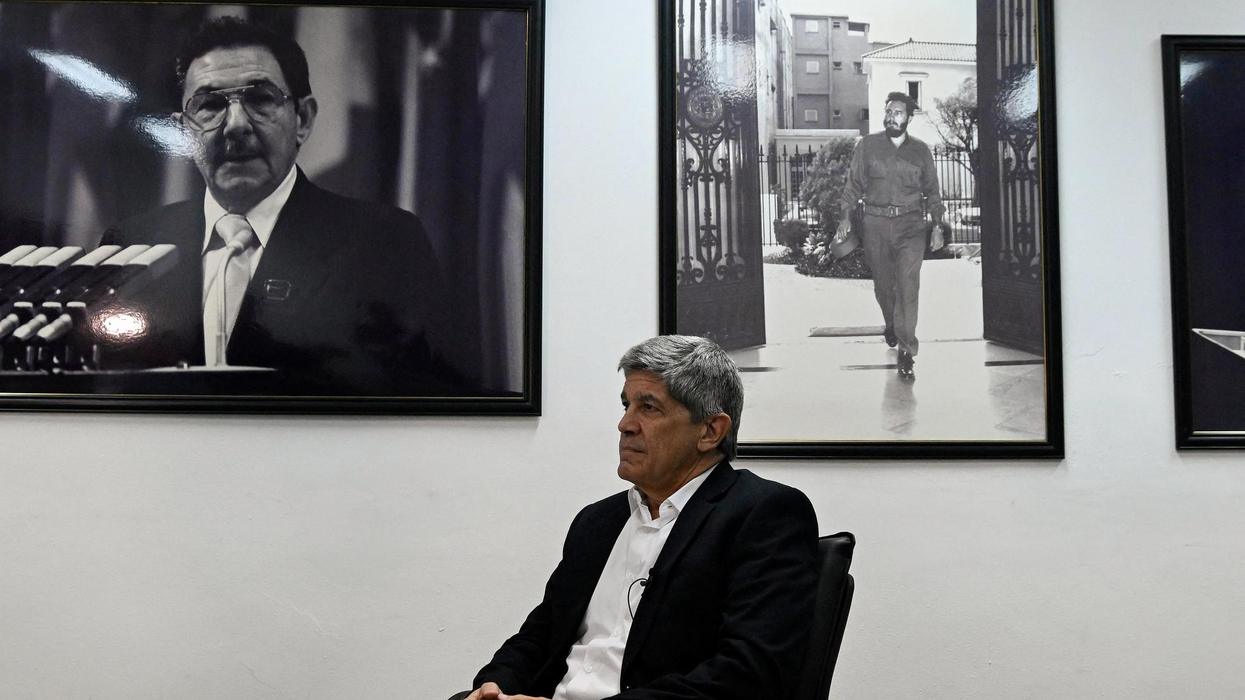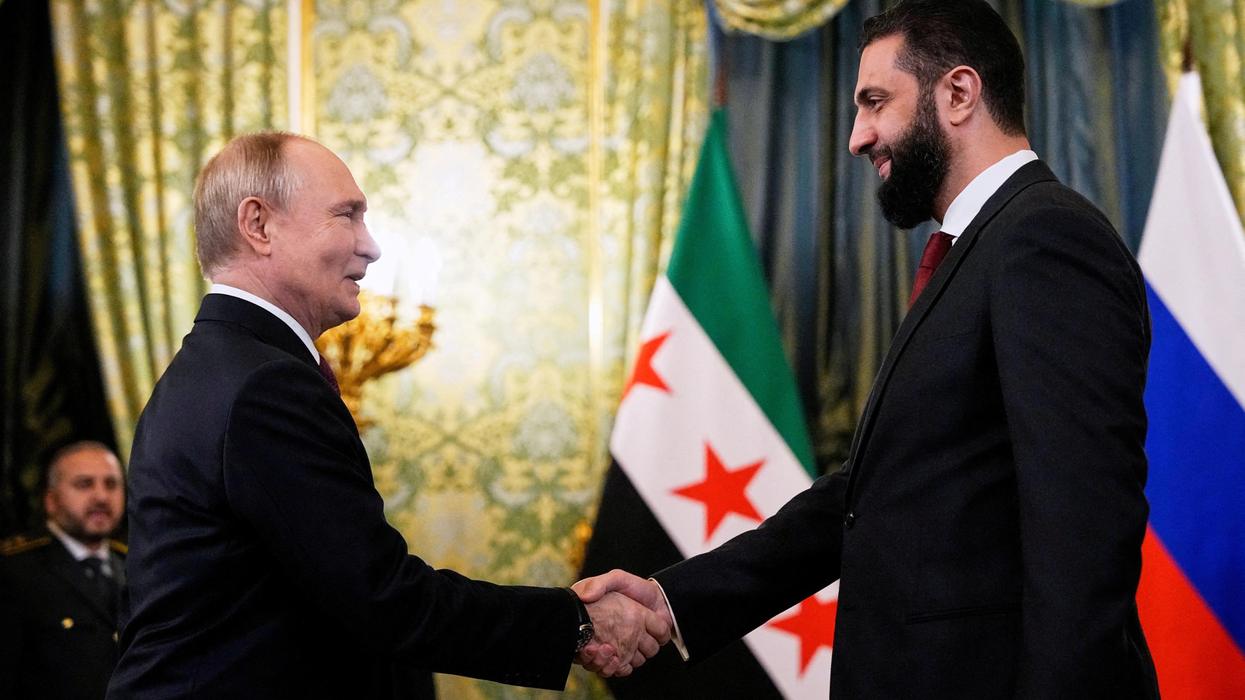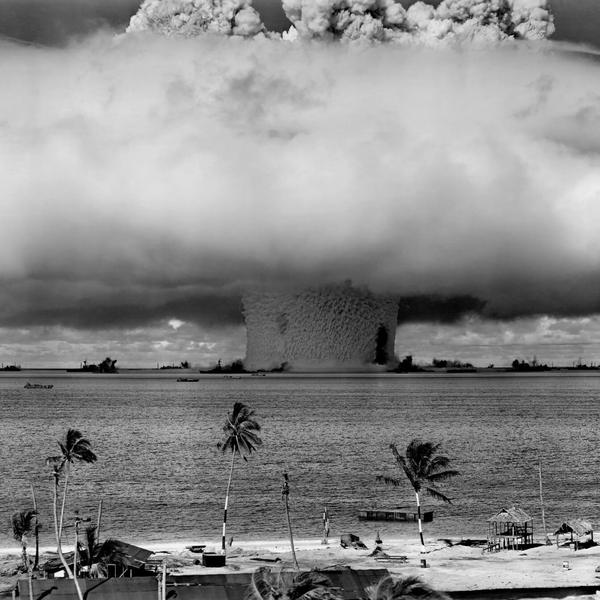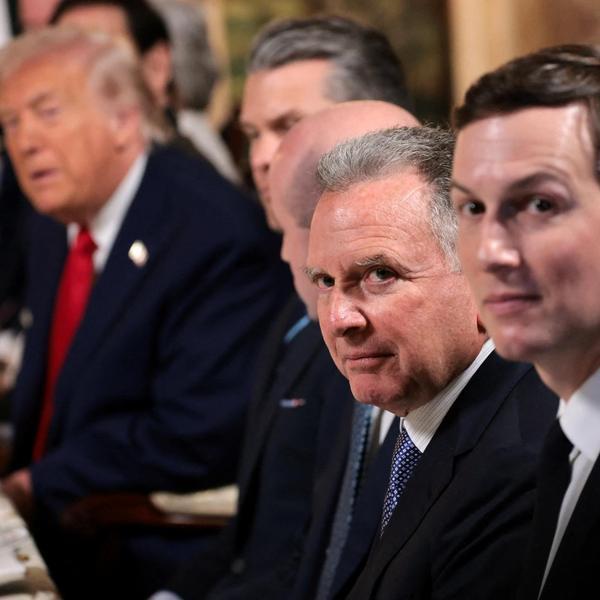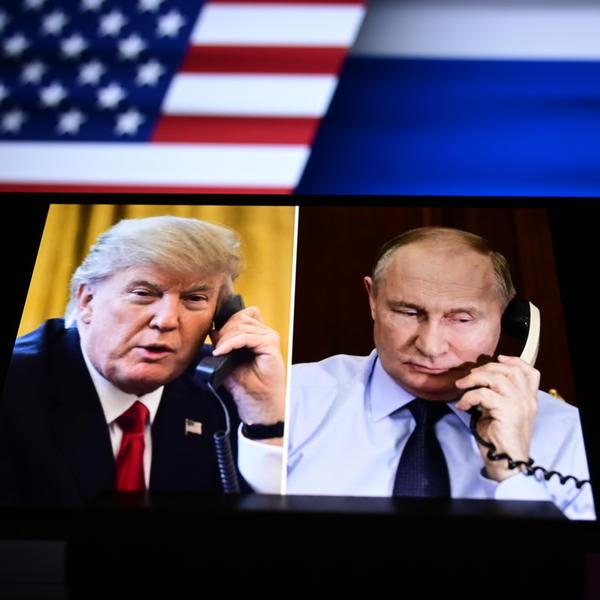This is part of our weeklong series marking the one-year anniversary of the Russian invasion of Ukraine, February 24, 2022. See all of the stories here.
While war rages in Ukraine, all is blissfully peaceful on the home front. Americans have embraced the official narrative. No western movie ever drew the good-versus-evil line so clearly or crudely. The White House, Congress, and the press insist that Ukraine is the innocent victim of unprovoked aggression, that Russian forces will threaten all of Europe if they are not stopped, and that the United States must stand with Ukraine “for as long as it takes” to assure victory.
Dissenting from this consensus is all but impossible. Even in the run-up to our 2003 invasion of Iraq, a few lonely voices cried out for restraint. Since we plunged into the Ukraine War, such voices are even harder to find.
Today it is considered heretical, if not treasonous, to suggest that all parties to the Ukraine conflict bear some blame, to argue that the United States should not pour sophisticated weapons into an active war zone, or to question whether we have any vital interest in the outcome of this conflict. A strictly enforced intellectual no-fly zone has all but suffocated rational debate about Ukraine.
In the halls of political power in Washington, Ukraine has become an almost mystic idea. It’s less a geographic place than a cosmic plane where a decisive battle for the future of humanity is unfolding. The war is seen as a glorious chance for the United States to bloody Russia — and to show that although the balance of world power may be shifting, we still rule.
America’s explosion of passionate love for President Volodymyr Zelensky of Ukraine was the triumph of an irresistible media campaign. He was presented as freedom’s new global hero. Overnight, his image popped up in shop windows and on internet sites.
In the opposing corner is another caricature, President Vladimir Putin of Russia, portrayed as epitomizing all vile and degenerate qualities. He fulfills our need to focus hatred not onto a country or a movement or an idea — that’s too diffuse — but onto an individual. For years, we reveled in our moral superiority over colorful nemeses like Castro, Khadafi, and Saddam Hussein. Putin fits perfectly into this constellation. Having such a cartoonishly wicked enemy is almost as reassuring as having the saintly Zelensky as an ally.
Soon after war broke out last year, Congress voted to appropriate $40 billion in aid to Ukraine. What was astonishing was not just the size of this package but the fact that every single Democrat voted for it. Only 11 senators and 57 House members, all Republicans, were opposed. The press applauded.
No country that is at war, directly or by proxy, encourages debate over whether the war is a good idea. The United States is no exception. Abraham Lincoln and Woodrow Wilson jailed critics of the wars they waged. Some opponents of the Vietnam War were prosecuted. The ghostly absence of debate over our involvement with Ukraine marks the latest victory of official narrative-shaping.
The Cold War was arguably the most powerfully developed narrative in modern history. For years, Americans were told to believe, and did believe, that they were mortally threatened by an enemy that could attack at any moment, destroying the United States and ending all hope for meaningful life on Earth. That enemy sat in Moscow.
By then, Americans were already accustomed to seeing Russia as an incarnation of “the other,” the force of barbarism that always threatens civilization. As far back as 1873, an American cartoonist depicted Russia as a hairy monster vying with a handsome Uncle Sam for control of the world. That archetype resonates across generations. Like most populations, Americans are easily mobilized to hate whatever country we are told to hate. If that country is Russia, we have generations of psychic preparation.
Politicians in Washington may be forgiven for jumping onto the Ukraine warpath. They presume that voters, who have more pressing concerns, will not punish them — and that arms makers will richly reward them. Less pardonable is the attitude of the press. Rather than play its putative role by posing uncomfortable questions, it has largely become chief cheerleader for the official Ukraine narrative.
Almost all battlefront reporting is from “our” side. We read an endless flood of stories about Russian atrocities and other outrages. Many are no doubt accurate, but the imbalance in reporting leads us to presume that the Ukrainian army commits no war crimes. A report by Amnesty International about Ukrainians’ use of human shields in battle was met with outrage and condemnation. The message is clear: justice is on one side, so reporting from the field must reflect that.
Many who write about this conflict seem to believe, as their predecessors did during the Cold War, that the U.S. government is a team and that the press has its role in assuring victory for our team. This view is death for journalism. The press should not be on anybody’s team. Our job is to challenge official narratives, not mindlessly amplify them. That is the difference between journalism and public relations.
For those of us who were war correspondents in an era when conflicts were reported from various perspectives, the one-sidedness of reporting about Ukraine is most striking. I covered Sandinistas and Contras, Serbs and Croats, Turks and Kurds. Those experiences taught me that in conflict, no one side has a monopoly on virtue. Today Americans are being told the opposite. We are fed a childlike narrative in which all virtue is on one side and all evil on the other.
The unwillingness of most war correspondents to cover the Ukraine War from both sides is reflected on editorial and op-ed pages. No major newspaper appears to pose fundamental questions about this war.
Is Putin justified in not wanting enemy bases on his border? Should we contribute to the death of thousands in order to make a political point? Did we help provoke the war? How much of Ukraine’s army is pro-Nazi? Why does it matter to the United States where the border of Donbas is drawn? Should we consider Ukraine’s reputation as one of the world’s most corrupt countries before sending it huge amounts of aid? Is this conflict really a titanic showdown between democracy and autocracy, or just another European brushfire?
Even as the United States sinks more deeply into the Ukraine War, these questions are deemed impolite to ask. The stifling consensus that binds our political parties and media prevents thoughtful debate. One of the worst results of the Ukraine War is already clear. It has led to a new closing of the American mind.



